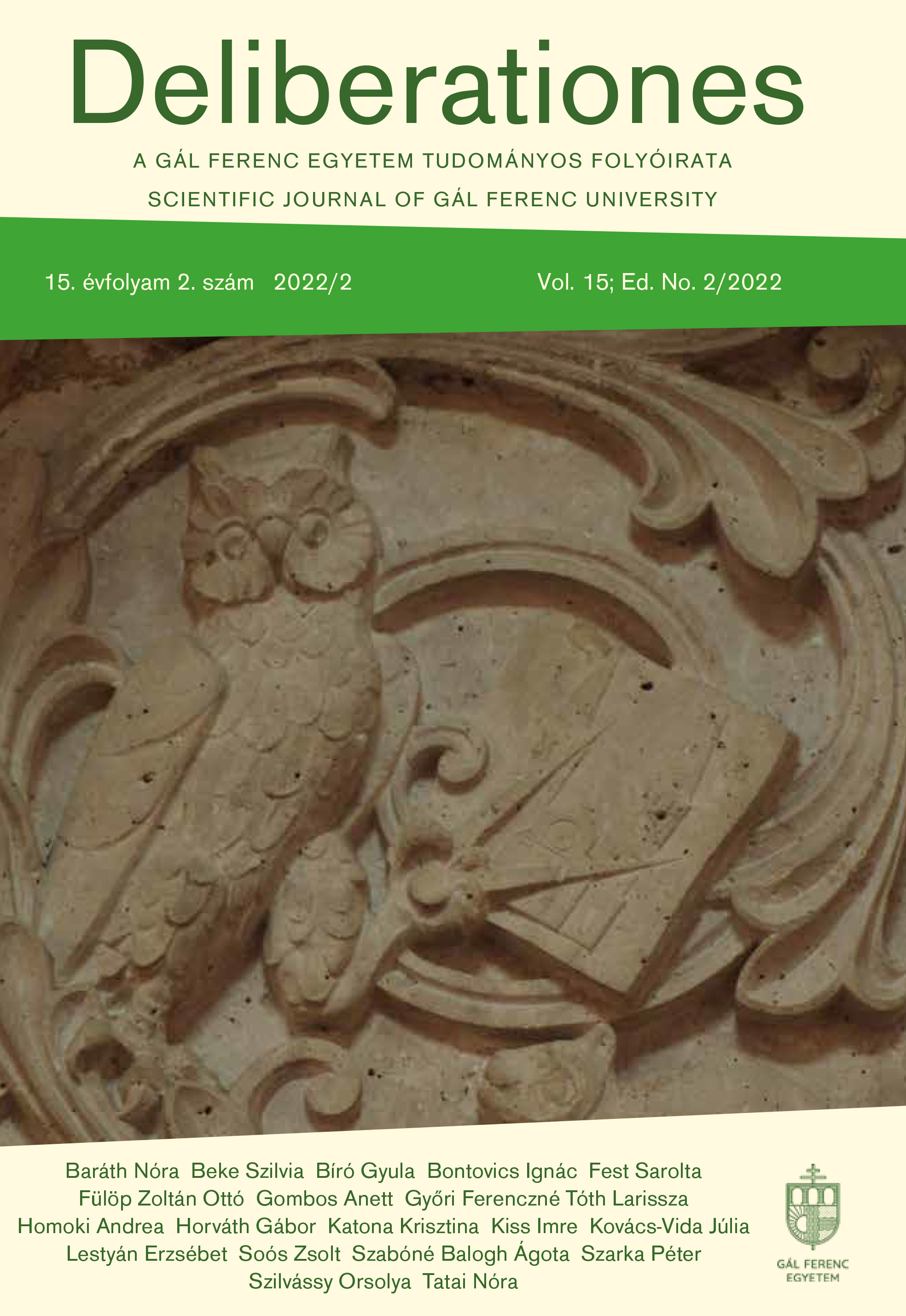Abstract
In this series of studies, we will report on the establishment and demonstrable results of dual-type training in social higher education.
In this part of the study, the background to the introduction of dual-type training in social higher education is presented, with a special focus on the detailed presentation of the position of the Board of the Hungarian Association for the Training of Social Professionals (2015). In this Position Paper, the Association's leadership, fearing certain possible negative consequences, in particular the damage to the generality of the training, formulated dilemmas regarding the introduction of this type of training in Hungary.
In parallel, we present in detail the results of a preliminary study on this topic (Soós, 2016), which led the researcher to conclude that the benefits of a carefully implemented training format, especially in terms of increasing the attractiveness of the training and the student experience, and helping disadvantaged students, could far outweigh the risks.
In our research, we primarily sought to answer the question of whether the positive or negative effects of the dual type of social work training at Gál Ferenc University are more evident.
In this part of the study, we also describe the process of introducing this type of training at Gál Ferenc University and the main features of its operation.
References
A Magyarországi Szociális Szakemberek Képzéséért Egyesület (Iskolaszövetség) (2015) ÁLLÁSPONTJA a duális képzésről a felsőfokú szociális képzésekben. http://www.3sz.hu/sites/default/files/ISZ_allasfoglalasa_a_dualis_kepzesrol_2015._04._30._0.pdf (Letöltés: 2022.11.12).
Bálint, J., Polónyi, I., & Siklós, B. (2006). A felsőoktatás minősége. Felsőoktatási Kutatóintézet.
Budai, I. (2006). Megközelítések a szociálismunkás-képzés fejlesztéséhez I. Esély 18(6), 62-88.
Duális Képzési Tanács. (2015-2019). A duális felsőfokú képzés alapelvei. https://2015-2019.kormany.hu/download/4/1d/50000/Az%20Nftv-ben% (Letöltés: 2022. 11. 12.)
Homoki, A. (2022). Duális Koordinátori Előterjesztés. Gál Ferenc Egyetem.
Soós, Zs. (2015, November 20). A duális típusú képzés alkalmazásának lehetséges előnyei és veszélyei a szociális felsőoktatásban. (Szekcióelőadás. „Helyi tudásokkal felvértezve.) Kutatások és innovatív gyakorlatok a szociális munkában.” c. szakmai konferencia. Károli Gáspár Református Egyetem - Magyarországi Szociális Szakemberek Képzéséért Egyesület (Iskolaszövetség). Budapest, Magyarország.
Soós, Zs. (2016). A felsőfokú szociális képzések megújításának egy lehetséges eszköze: a duális képzés. Szociálpedagógia, 4(1-2), 96-103.
Teleki, B. (2003). Szociális munka elmélete. Szociális Füzetek I. Korda Kiadó.
Felhasznált jogszabály és statisztikai adatbázisok, háttérforrások:
évi CCIV. törvény a Nemzeti Felsőoktatásról (NFt). https://net.jogtar.hu/jogszabaly?docid=a1100204.tv (Letöltés: 2022. 11. 12.)
